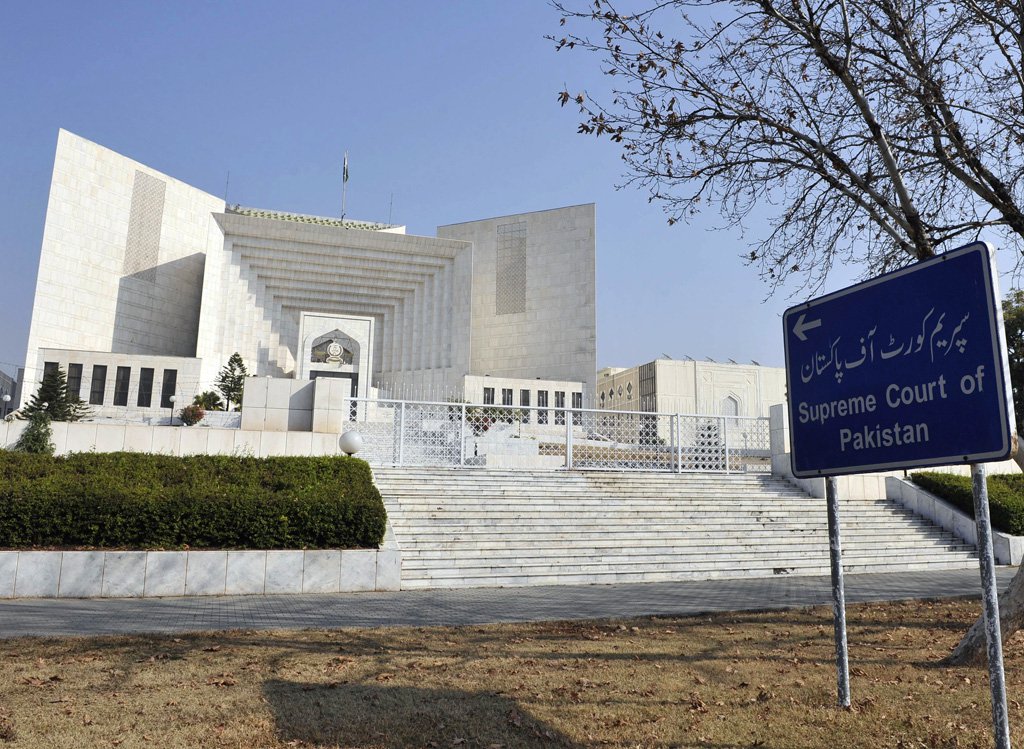
The pendency of cases in the Supreme Court has not increased for the last three months -- rather came down -- despite the fact that there were three vacant posts of judges.
Until February 1, a total of 53,624 cases were pending in the apex court. However, that number reduced to 52,899 cases until April 30.
Senior lawyers believe that if three SC judges are not appointed soon, then the pendency of cases might increase as was witnessed during the tenure of ex-CJP Gulzar Ahmed.
The Judicial Commission of Pakistan (JCP) has already sought the data on the reported judgments and cases decided by the six most senior judges of the Lahore High Court as well as 12 senior judges of the Sindh High Court for the appointment of the three SC judges.
The matter of the appointment of SC judges has been a challenge for the JCP. The last six appointments it made were seen as violations of the seniority principle.
The superior bars have on many occasions lodged protests against the appointment of judges against the seniority principle.
CJP Umar Ata Bandial has always supported the appointment of SC judges on the basis of competency, integrity, judicial temperament, etc.
His views were reflected in his speech during a JCP meeting on September 9, 2021, when he had remarked that seniority could not be the principle consideration for the appointment as this was not a promotion.
He had added that if seniority was the criteria, then there was no need for the commission as judges in the superior courts would then be appointed through a “conveyer belt mechanism”.
Prompted by agitation from the lawyers' community, former CJP Gulzar Ahmed had formed a rules committee led by incumbent CJP Umar Ata Bandial to evolve criteria on the appointment of superior court judges.
A representative of the superior bar is of the view that the legal fraternity demands that comprehensive criteria on the appointment be evolved before considering the new appointments to the SC.
Currently, Sindh High Court Chief Justice Ahmed Ali Sheikh is a senior judge.
Read FIA challenges IHC order against PECA Section 20 in SC
It has been learnt that the JCP might consider his appointment as the chief justice of the Federal Shariat Court.
A debate has also started that whether or not a qualified lawyer could be directly appointed as an SC judge.
Legal expert Advocate Hafiz Ahsaan Ahmad Khokhar said in addition to the qualification of Article 177 (2) (a) of the Constitution, any person who had remained an advocate of a high court for a period of over 15 years could be eligible and qualify for the appointment as of a judge of the SC under Article 177 (2) (b).
According to him, the members of the bar had already requested many times on different occasions that the appointment process of judges in the superior courts should be transparent and streamlined, and they had very valid reasons behind their recommendations and required genuine consideration.
He added that the framers of the Constitution had intentionally incorporated two modes with different qualifications criteria for fresh appointment in the Supreme Court of Pakistan under Article 177 (2) (a) and 177 (2) (b).
Khokhar noted that though the direct appointment principles prescribed for the appointment of judges under Article 193 (2) (a) for the high court had been followed and implemented. However, he added that since 1973, the Constitutional provision prescribed under Article 177 (2) (b) relating to fresh appointment of judges to Supreme Court had not been practically implemented.
He said there was no concept in the Constitutional interpretation mechanism to make any provision of the Article ineffective for a longer period.
Khokhar said the intention of framers of Constitution behind incorporating Article 177 (2) (b) for qualification relating to the fresh appointment of judges to the Supreme Court was very much clear.
”It is evident from the plain language of the Article that the legislatures had a strong desire, analogy and wisdom to bring good, fresh and experienced legal professionals and experts as well with vast practical experience in different legal fields for the good quality of working in the apex court of the country.”
According to him, it was also important to note that despite many changes through Constitutional amendments, the provisions of Article 177 (2) (b) relating to the fresh appointment of judges to the Supreme Court had not been even slightly changed up till now but had remained intact.


1731911943-0/trump-(25)1731911943-0-165x106.webp)

1731911251-0/BeFunky-collage-(64)1731911251-0-165x106.webp)

1731909919-0/Express-Tribune-(15)1731909919-0-270x192.webp)
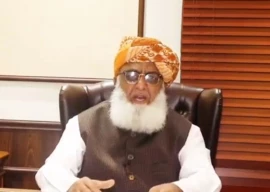

1728020241-0/Express-Tribune-Web-(12)1728020241-0-270x192.webp)


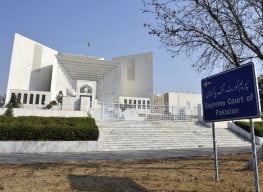
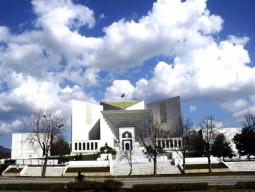
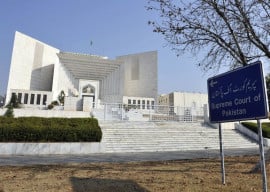
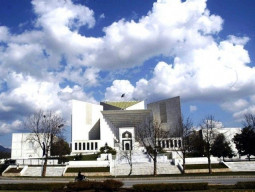






COMMENTS
Comments are moderated and generally will be posted if they are on-topic and not abusive.
For more information, please see our Comments FAQ